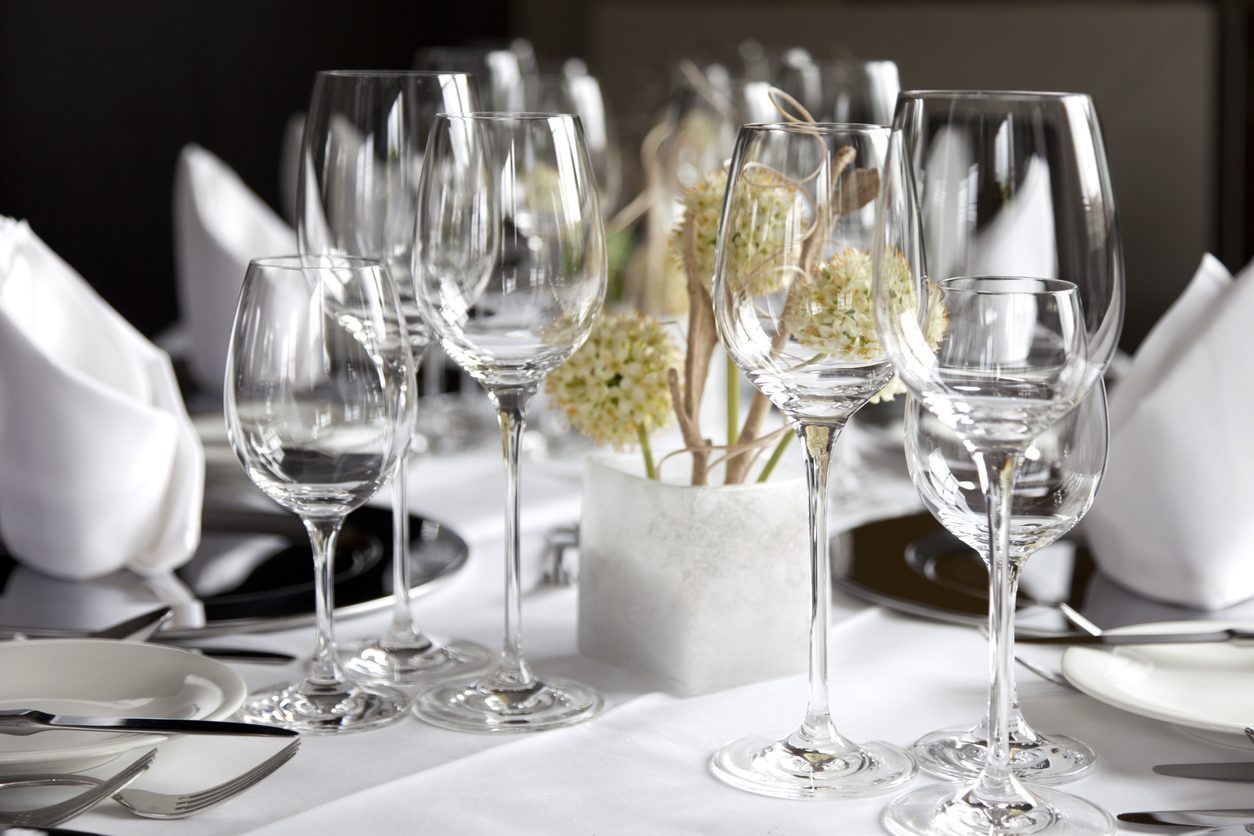Brush Up on Your Table Manners – Useful Dining Etiquette!
Since not many of us are able to wine and dine given our current situation, perhaps now is the best time to brush up on some table etiquette. Many people think that etiquette is antiquated and archaic, but let’s face it, good table manners never goes out of style! This means that learning a few good table manners will garner you much respect from the rest of your company (or at least take the attention off of yourself!). Read on to see how you can improve on your etiquette.
;)
Even if you don’t like fancy restaurants (or plan on having lunch with royalty), good table etiquette can go a long way. You don’t want to embarrass your friends or business partners, right? Or even worse, what if it’s a first date? Don’t worry, with our tips, you will be eating with some serious style in no time!
You’re invited to a dinner… what do you do? First things first: it’s good manners to respond (it doesn’t have to be an official RSVP). It makes life much easier for the hosts to plan for your arrival. If you ignore the invitation and just rock up, it can turn into a somewhat awkward situation if they weren’t expecting you. Think of this: do you like it if your guests ignore your requests? The answer is no. Also, when responding, don’t ask if you can bring guests, since this puts the hosts in a tight spot. If they say no, they might seem rude, but the reason for this might be solely due to limited space.

Make sure you never arrive empty-handed. You don’t have to bring an expensive gift, but something small like a potted plant or a bottle of wine is great way of showing appreciation. A bouquet of flowers seems to be quite a popular choice, but it’s often a cumbersome gift for the hosts, because they have to rummage through a cupboard looking for vase big enough for the bouquet. This can be especially inconvenient if the hosts are already having their hands full in receiving other guests and making sure the start of the event runs smoothly.

If you don’t see name cards on the tables, you may ask the hosts if there are seating preferences. But whatever you do, don’t sit at the head of the table, that is usually reserved for the host or their partner. Don’t start eating immediately: in many cultures it’s custom to say a small prayer or blessing before the meal. And even if you are not religious, it’s a sign of respect to be silent (some bow their heads) until the blessing is finished. It is in any case just respectful not to scoff down food while the host is giving a speech or toast or whatever he/she feels fit to do.

If the dining takes place at a restaurant, it’s best to wait until everyone has received their food before you start eating (in a sense this is similar to the point made above, i.e. to wait until the host signals that you may start with your meal). If the meal occurs in a private home, and the hosts don’t explicitly state when you may begin, wait for the hosts to pick up their eating utensils and then follow suit.
If you’re following a menu with several courses, the utensils can become confusing, but the general rule of thumb is to start from the outermost utensils (from your plate) and work your way inwards. If all else fails, see what the host does and do the same!

It’s generally considered rude to reach across the table, so if you need salt, pepper, or another condiment, ask the person closest to the item to pass it on. If you are the one being asked, remember that salt and pepper should be given together. Also, taste your food first before adding seasoning, otherwise it could be insulting to the host.
Despite what you might see on food shows, it’s still not (and never will be) cool to talk with a mouth full of food. No one wants to see a piece of masticated food while you talk. If you have a lot to say, take smaller bites. In that way, you can chew it quick enough to get a word in. In any case, give others a chance to talk!

There are a few other small (but important) things to keep in mind while you’re eating. Your phone should be on silent, and refrain from texting or reading messages while you’re at the table. If you are served finger foods, observe how the hosts eat their food. If they use their hands, then you are also allowed to. Don’t apply makeup, floss, or pick your teeth at the table!
Finally, you should always send a thank-you note to the host within two days!
;Resize,width=767;)
;Resize,width=712;)

;Resize,width=712;)
